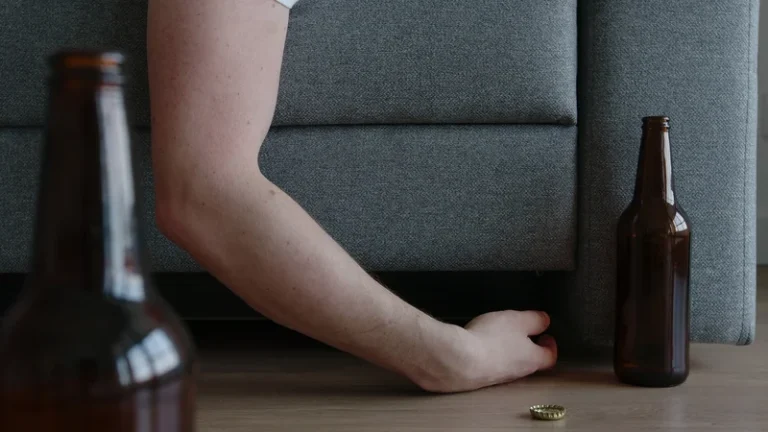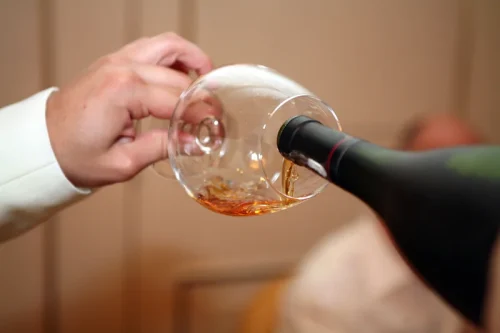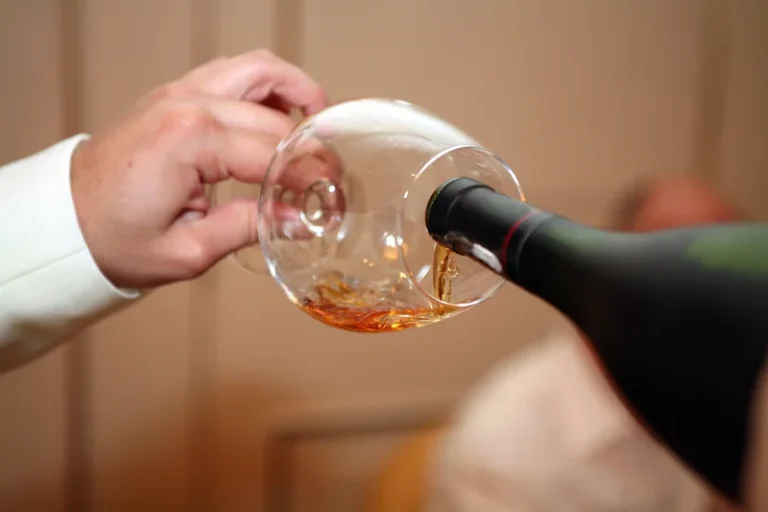Alcohol: Does it affect blood pressure?

Metabolism and ClearanceMost alcohol is processed by the liver, where enzymes (e.g., alcohol dehydrogenase) break it down into acetaldehyde and then acetate. The average person’s body can generally handle about one standard drink per hour. Exceeding that rate can lead to rising blood alcohol concentrations, which can contribute to short-term physiological changes and potential harm if done repeatedly over time. Women should be especially cautious about alcohol, Goldberg says, as they may be more likely than men to develop health problems, particularly among young or middle-aged women who have eight or more drinks a week. “I generally advise patients to try to avoid alcohol intake until we can get the blood pressure controlled,” Goldberg says.
Similar articles

But how you drink — fast or slow, with or without food — and how old you are can also determine how alcohol might affect your heart rate. Simply put, it’s better to sip than guzzle and it’s always better to enjoy that drink with some food. The Atherosclerosis and Vascular Remodelling Group is researching the cellular and molecular mechanisms behind atherosclerosis to help prevent and treat cardiovascular disease.
Should You Drink Alcohol If You Have High Blood Pressure?
In any case, your heart is definitely beating faster — and not just from the social vibe. There is no singular recommended level of alcohol for people who have high blood pressure aside from reducing your intake as much as possible. According to a 2020 literature review, clinicians are not completely sure why alcohol raises blood pressure. In marijuana addiction addition to alcohol use, many other factors can cause high blood pressure. This may be why binge drinkers are more likely to have high blood pressure than their teetotaling counterparts, a 2018 study in the Journal of American Heart Association suggests.
Alcohol and High Blood Pressure: Effects and Advice
Understanding how alcohol affects blood pressure and making informed choices about your alcohol intake can reduce your risk of developing hypertension, heart attack, stroke, and other cardiovascular issues. Drinking too much alcohol over time can lead to sustained high blood pressure alcohol. Heavy alcohol use—defined as more than three drinks per day—damages the blood vessels, weakens the heart muscle (a condition called alcoholic cardiomyopathy), and leads to a higher risk of developing hypertension. Drinking too much alcohol can raise pressure on the walls of blood vessels to unhealthy levels.
- One of the most appropriate ways to reduce alcohol-induced high blood pressure is to reduce your alcohol intake as much as possible.
- Alcohol consumption is categorized into different levels based on the amount consumed.
- However, even people who do not drink regularly have a risk of experiencing negative effects from alcohol.
- This increased pressure can strain the heart and blood vessels, leading to serious health issues such as heart attack, stroke, and kidney disease.
- As social gatherings and holiday celebrations frequently feature festive beverages, it can be challenging to avoid drinking entirely.

You may have seen headlines that linked having one drink a day to a greater rise in blood pressure with age, compared to people who don’t drink at all. Dr. Mathis also identifies the specific types of alcoholic beverages that are particularly problematic for individuals with high blood pressure. Drinks with added sugars, such as those mixed with soda, dessert cocktails, margaritas, and high-alcohol content drinks like Manhattans or dirty martinis, can exacerbate the blood pressure-raising effects of alcohol. However, he notes that the amount of alcohol consumed is more influential than the type of drink. The AHA states even people who drink one alcoholic beverage per day showed a link to higher blood pressure compared to non-drinkers. So, the short answer is, yes — drinking alcohol will increase your heart rate.
What is an appropriate alcohol intake for people with high blood pressure?

Experts have known for a while that heavy drinking — meaning eight or more drinks per week for women and 15-plus per week for men — raises your risk for high blood pressure (a.k.a. hypertension). When blood pressure, the force of blood flowing through your arteries, is consistently high, that ups your risk for heart attack, stroke and heart failure, as well as vision loss and kidney disease. Francisco Lopez-Jimenez, MD, a cardiologist at the Mayo Clinic, explains that consuming more than three drinks in a single sitting can temporarily increase blood pressure. More concerning, regular binge drinking—defined as four or more drinks within two hours for bp alcohol women and five or more for men—can lead to long-term increases in blood pressure.
- Drinking too much alcohol is a leading risk factor for developing high blood pressure alcohol.
- This effect can be more pronounced the morning after, when the body is in withdrawal from alcohol, potentially accompanied by anxiety, sweating, and restlessness.
- Quitting alcohol or drinking moderately may help keep your numbers where they need to be, according to the American Heart Association (AHA).
- Some people wonder if specific types of alcohol, like red wine or beer, are better for blood pressure alcohol.
- Studies have shown that excessive alcohol consumption can worsen blood pressure levels.
- On average, a regular heart rate is about 60 to 100 beats per minute when your body is at rest.
- The statements and conclusions in each manuscript are solely those of the study authors and do not necessarily reflect the Association’s policy or position.
- High blood pressure is known as a silent killer because it usually doesn’t show symptoms until it’s dangerously high.
Second-generation antihistamines such as Zyrtec (cetirizine), Allegra (fexofenadine), and Claritin (loratadine) are less likely to cause drowsiness. Benadryl is a potent first-generation antihistamine that crosses the blood-brain barrier, a protective filter that helps keep harmful substances from reaching the brain. It works on the CNS by slowing it down to block the effects of histamine, a chemical released by the immune system that causes allergy symptoms. However, this depression of the CNS may result in drowsiness, sedation, and lack of mental alertness.

Related Links
Blood Pressure Categories Infographic describing the corresponding blood pressure readings between normal and hypertensive crisis. She notes that it can cause an enlarged heart (alcoholic cardiomyopathy), which weakens your heart and makes it harder to pump blood. And if you drink heavily and quickly, Goldberg says it can set you up for heart arrhythmias, which are abnormal or irregular heartbeats.








